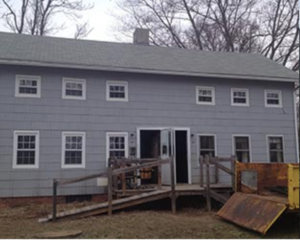 When someone dies, their estate has to be administered in Probate Court. The Probate Court handles many things other than decedent estates, but for this article, we’ll focus just on probate in the context of someone passing away.
When someone dies, their estate has to be administered in Probate Court. The Probate Court handles many things other than decedent estates, but for this article, we’ll focus just on probate in the context of someone passing away.
There are three types of estates, listed in the order of complexity and length of time to process: Tax Purposes Only (TPO), Small Estates, and Full Estates. The type of estate is determined by the value of the solely owned property.
There’s a lot of misinformation out there about what the executor can do, should do, and how to do it. I have written this article to provide executors with a base education so that they can get the most out of the estate and have more meaningful dialogue with their attorneys and families in the process.
First and foremost, what are the executor’s options with real estate?
Simply put, the executor can
1. facilitate the inheritance of the property by the beneficiary (or beneficiaries) or
2. sell the real estate. In a decedent’s estate where the decedent had a will, the majority of the time the distribution of the real estate will pass according to the will.
For example, if the will indicates the spouse as the beneficiary of the real estate, that directive is honored. But what happens if the beneficiary doesn’t want the property? For example, the house is too large for the spouse alone or requires upkeep beyond what the spouse is capable of. Then what? One option is to process the estate and let the property pass by the Court into the beneficiary’s name and let the beneficiary sell the property after it has transferred fully into their name. The other option would be for the executor to sell the real property during the probate process and allow the funds of that sale to pass to the beneficiary.
It is possible for the executor to deviate from the decedent’s wishes to fulfill the obligations of the estate.
For example, if the estate has debts beyond their ability to satisfy those debts with their liquid assets but the real estate has significant equity, the executor may opt to sell the real estate to liquidate the equity and pay those debts. Another reason why the executor would deviate from the will would be if the beneficiaries all wanted the distribution to be something different than what the will requires and they all agree on the alternate distribution. In that case, the executor can request a Mutual Distribution which allows the Court to approve a distribution other than required by the will at the agreement of all interested beneficiaries. Another way for the distribution to deviate from the decedent’s wishes is if the beneficiary refuses to inherit the real property.
Who’s responsibility is the real estate?
One factor that may be a determinant in deciding when to sell the real estate is based on the responsibility involved. While the probate process is pending and before the real property has been transferred to the beneficiaries, the estate is responsible for all costs and maintenance of the property. Once transferred, the new owner assumes that responsibility. This is most relevant when the beneficiaries of the estate Since the executor is responsible for preserving the estate, it is favorable for the executor to transfer the real property as soon as possible to the new owner to also transfer the economic responsibility of the property. In sum, a sale during the probate process can preserve the estate.
How can an executor sell the real estate?
In situations where there are multiple beneficiaries or none of the beneficiaries want the real estate, the executor may opt to sell the property during the probate process rather than wait to have it distributed to the beneficiaries. This would have a number of benefits: it reduces the number of eventual decision-makers and could avoid contentious relations among the beneficiaries and it would minimize the exposure of the estate (see the paragraph above). If the executor wishes to sell the property during the probate process, the standard course of action is to petition the court to have the sale approved. The beneficiaries have the opportunity to object which makes a court-approved sale is the safest way for the executor to proceed. In circumstances where a faster sale is needed or when the beneficiaries are generally on good terms or in agreement, the executor may wish to sell without a hearing because the statute empowers them to do so without a hearing. (Pro tip: I would only advise my clients bypass the hearing with written consent from all the beneficiaries).
Who to sell to?
A house can be an unwanted inheritance if it’s in bad shape or even just some slight deferred maintenance can be a hassle if the executor or beneficiaries are out of state. Other problems could be if there’s a tenant that the executor or beneficiaries don’t want to deal with or if there are liens on the estate that need to be satisfied using the equity in the real estate. In that situation, executors may want to sell the house rather than have a beneficiary inherit it. If the house is in good shape and time is not of the essence, the executor should list the house on the MLS. However, if there is a time sensitivity, the MLS is not a suitable path because most buyers on the MLS will require mortgage contingencies that could take 30-60 days to satisfy. The MLS also has mostly retail buyers who can’t get a loan on a house in bad shape so properties with deferred maintenance (ranging from light rot and peeling paint to fundamental defects like structural repairs) are sold the fastest and in the easiest transactions to cash buyers, like Sunrise Real Estate.
Why sell to a cash buyer?
Cash buyers, like Sunrise Real Estate, make is easy to sell a house fast in any condition. Whether a bad tenant is in place, the house is in bad shape and you don’t want to do repairs, you need a quick closing. You don’t want to remove personal items from the property, or any other quirky situation you can think of. Cash buyers offer the least hassle and fastest closing times. Because we buy in cash, we can close in as little as 10 days. We also work with your unique situation and can make multiple offers to show you what your options are. And the best part is, we have a network of professionals so whether you want to list your house or it just needs some renovations that you couldn’t visualize before, we want to help YOU meet your goal.
So if you’re unsure what the best option is for a house you’re going to inherit or you’re administering in probate, we’d love to make you an offer so you can see what your options are. Our offers are free and non-binding.
